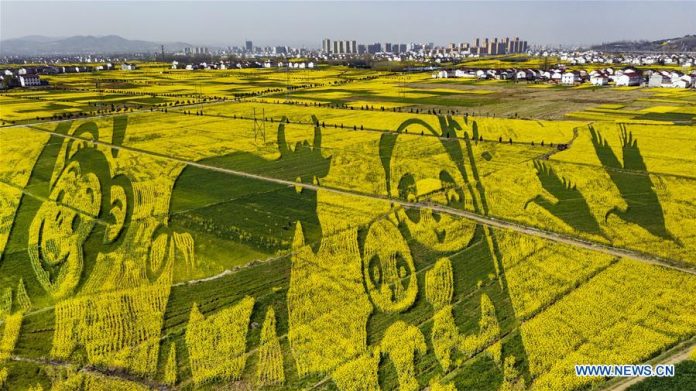Source: Xinhua
A crested ibis flies by a villager in Zhoujiakan Village in Yangxian County, northwest China’s Shaanxi Province, July 31, 2020. On May 23, 1981, the world’s last seven wild crested ibises were found in Yangxian County. In order to protect crested Ibis, the local government encourages farmers not to use chemical fertilizers and pesticides in the farmland in the crested Ibis habitats. Yangxian had chosen organic industry as a way to solve the contradiction between protecting ecological environment and crested ibis and developing economy. Taking the “organic” strategy, Yangxian takes ecological conservation as its first requirement. Crested ibis, which was nearly extinct, has multiplied from the original seven to more than 5,000 in the global population, of which more than 2,000 are in Yangxian. The long-term accumulation of ecological asset in Yangxian County has also gradually released huge economic potential. Organic industry has not only become the top priority of county economic and social development, but also the leading industry to drive the poor out of poverty. (Xinhua/Tao Ming)





















